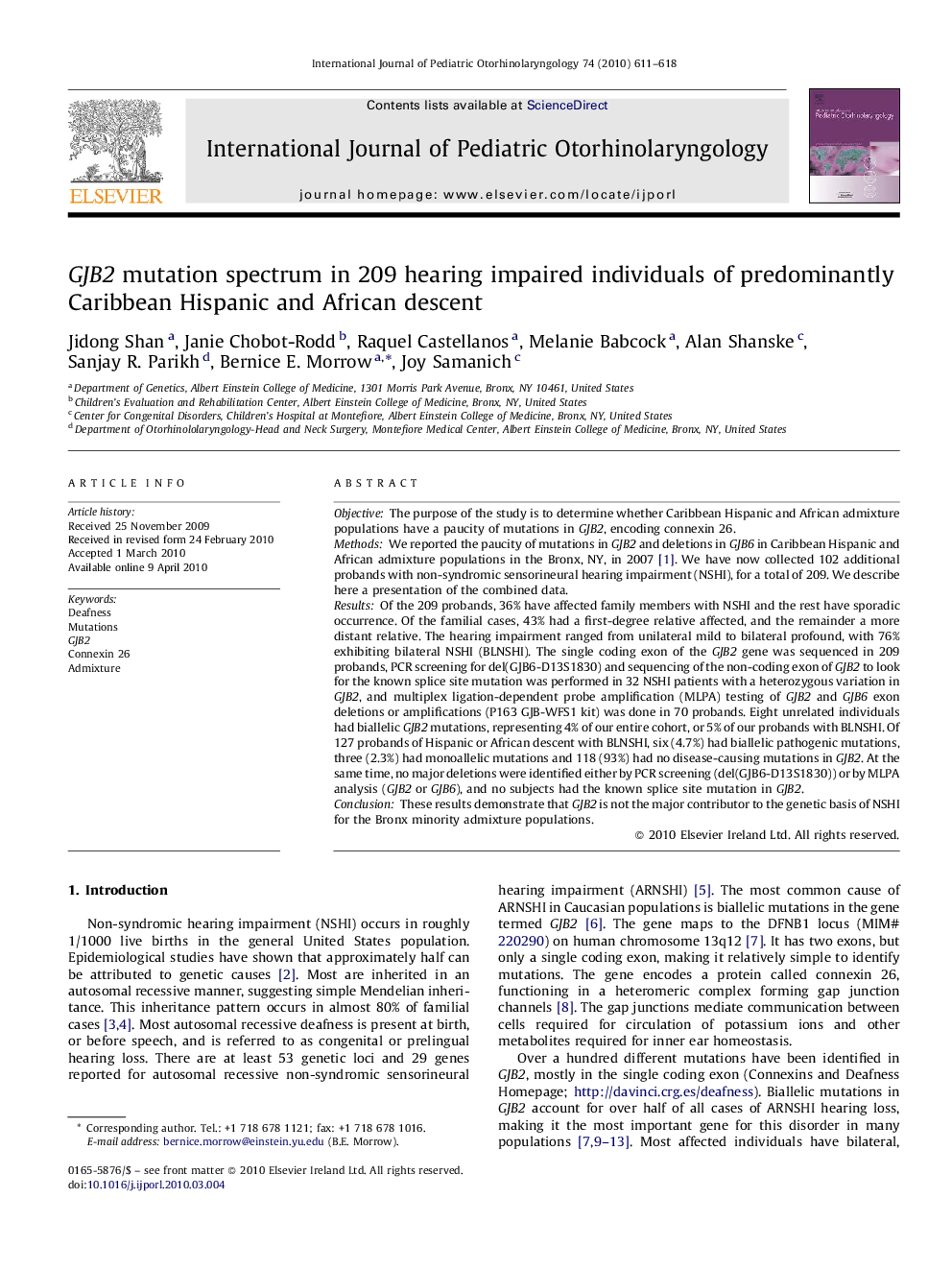| کد مقاله | کد نشریه | سال انتشار | مقاله انگلیسی | نسخه تمام متن |
|---|---|---|---|---|
| 4114053 | 1606057 | 2010 | 8 صفحه PDF | دانلود رایگان |

ObjectiveThe purpose of the study is to determine whether Caribbean Hispanic and African admixture populations have a paucity of mutations in GJB2, encoding connexin 26.MethodsWe reported the paucity of mutations in GJB2 and deletions in GJB6 in Caribbean Hispanic and African admixture populations in the Bronx, NY, in 2007 [1]. We have now collected 102 additional probands with non-syndromic sensorineural hearing impairment (NSHI), for a total of 209. We describe here a presentation of the combined data.ResultsOf the 209 probands, 36% have affected family members with NSHI and the rest have sporadic occurrence. Of the familial cases, 43% had a first-degree relative affected, and the remainder a more distant relative. The hearing impairment ranged from unilateral mild to bilateral profound, with 76% exhibiting bilateral NSHI (BLNSHI). The single coding exon of the GJB2 gene was sequenced in 209 probands, PCR screening for del(GJB6-D13S1830) and sequencing of the non-coding exon of GJB2 to look for the known splice site mutation was performed in 32 NSHI patients with a heterozygous variation in GJB2, and multiplex ligation-dependent probe amplification (MLPA) testing of GJB2 and GJB6 exon deletions or amplifications (P163 GJB-WFS1 kit) was done in 70 probands. Eight unrelated individuals had biallelic GJB2 mutations, representing 4% of our entire cohort, or 5% of our probands with BLNSHI. Of 127 probands of Hispanic or African descent with BLNSHI, six (4.7%) had biallelic pathogenic mutations, three (2.3%) had monoallelic mutations and 118 (93%) had no disease-causing mutations in GJB2. At the same time, no major deletions were identified either by PCR screening (del(GJB6-D13S1830)) or by MLPA analysis (GJB2 or GJB6), and no subjects had the known splice site mutation in GJB2.ConclusionThese results demonstrate that GJB2 is not the major contributor to the genetic basis of NSHI for the Bronx minority admixture populations.
Journal: International Journal of Pediatric Otorhinolaryngology - Volume 74, Issue 6, June 2010, Pages 611–618